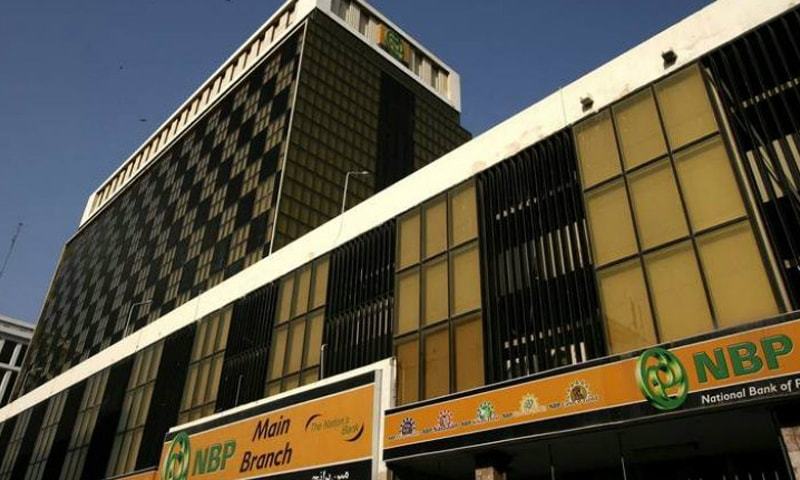- Tanveer Abbas
- 21 Minutes ago
NBP retirees plead for justice as pension stagnation persists
-
- Web Desk
- Nov 14, 2023

ISLAMABAD: In a saga spanning 24 years, thousands of former employees of the National Bank of Pakistan (NBP) find themselves entangled in a relentless pursuit for the enhancement of their pensions.
The odyssey began in 1999 when the NBP management, through an order, reduced pensions to nearly 33%, despite an earlier pension scheme launched by the federal government in 1977.
In a significant development in September 2017, the Supreme Court issued an order directing the state-owned bank to boost pensions for its retired employees. However, the bank filed a review petition with the apex court in early 2018, initiating a protracted legal battle that has left retirees in financial limbo.
A retired NBP officer lamented the prolonged legal proceedings, highlighting that the petition has languished in the Supreme Court for over five and a half years.
He said that approximately 11,000 pensioners and 3,000 widows anxiously await a resolution with the hope that a livable pension will be granted.
Tragically, he said the toll of time has claimed the lives of 1,000 pensioners while the case remained mired in different courts.
Retired bank official Ansari recounted the arduous journey, noting that the pension dispute took about 12 years to decide, emphasizing the challenges faced by retirees who had already spent decades in service.
Naseer Khan, another retired NBP official, emphasized the dire circumstances, asserting that survival on the reduced pension has become nearly impossible.
He appealed to the apex court to swiftly resolve the matter, offering much-needed relief to the retirees who find themselves grappling with financial uncertainties.
Cabinet mulling to tax windfall income of banks tomorrow
Despite the Supreme Court setting a hearing date for Wednesday, the legal battle persists.
Salman Akram Raja, counsel for the NBP retired employees, expressed frustration, revealing that the NBP’s legal team has filed a plea seeking adjournment of the hearing.
Raja accused the NBP of waiting for the natural demise of retired employees, insinuating a callous approach to the retirees’ plight.
Highlighting the stark contrast between the inflation rate, which has surged 400 times since 1999, and the frozen pensions, Raja underscored the financial strain on retired employees, whose pensions remain fixed at 33% of the total.
The retirees, he said in their twilight years, continue to grapple with uncertainty, hoping that the wheels of justice will turn in their favour.
In 1977, the federal government laid the foundation for a pension scheme, stipulating that executives and officers of nationalized banks would receive a pension at a rate of 70% of average emoluments upon completing 30 years of qualifying service, with a minimum service requirement of 10 years. This pension scheme was implemented with effect from May 1, 1977.
The landscape underwent a seismic shift in 1997 when the Banks Nationalisation Act 1974 saw substantial amendments. The dissolution of the Pakistan Banking Council empowered nationalized bank boards of directors to determine personnel policies. Notably, the bank president gained the authority to decide employee remuneration and benefits in accordance with policies determined by the board.
In 1999, the NBP board of directors greenlit a revised pay structure for officers and executives, effective from January 1, 1999. This revision increased the basic salary from 110% to 140%, accompanied by a multitude of benefits. The new pay structure also brought about changes to the formula for monthly gross pension.
Following superannuation, a group of bank employees filed writ petitions before the Lahore and Peshawar high courts in 2010 and 2011. They sought the re-calculation of pension benefits in line with the bank’s circular dated December 26, 1977, and requested an increase in alignment with federal government allowances.
The legal battle reached a juncture on June 3, 2014, when the Peshawar High Court dismissed the petition. The court observed that petitioners could not claim benefits comparable to employees in other institutions governed by different statutes and service rules. Unsatisfied, pensioners appealed this decision before the Supreme Court.
In a significant turn, the Lahore High Court, on January 15, 2016, directed the bank to release pension benefits for the petitioners. However, the bank responded swiftly by filing intra-court appeals in January 2016. These appeals met dismissal by the Lahore High Court through its judgment on January 16, marking the latest chapter in the protracted legal ordeal surrounding the pension benefits of NBP retirees.




